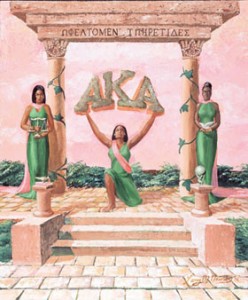 The history of Greek letter societies in America begins on December 5, 1776, with the founding of The Phi Beta Kappa Society at the College of William and Mary. Its name deriving from the initials of a secret Greek motto, Philosophia Biou Kybernētēs = “Love of learning [is] the guide of life”, the fraternity was a forum for students to discuss topics not covered by their classical education. In addition to its secrecy and selection of a Greek name, it also introduced a code of high ideals, secret rituals and handclasps, membership badges, and oaths that characterized later Greek letter societies. As Phi Beta Kappa developed, it came to become a very influential association of faculty and select students across several colleges, with membership becoming more of an honor and less of a functioning society.
The history of Greek letter societies in America begins on December 5, 1776, with the founding of The Phi Beta Kappa Society at the College of William and Mary. Its name deriving from the initials of a secret Greek motto, Philosophia Biou Kybernētēs = “Love of learning [is] the guide of life”, the fraternity was a forum for students to discuss topics not covered by their classical education. In addition to its secrecy and selection of a Greek name, it also introduced a code of high ideals, secret rituals and handclasps, membership badges, and oaths that characterized later Greek letter societies. As Phi Beta Kappa developed, it came to become a very influential association of faculty and select students across several colleges, with membership becoming more of an honor and less of a functioning society.
This uniquely North American institution soon flourished and soon, new or auxiliary chapters of existing fraternities were present on nearly all college and university campuses across America. At the same time, sororities (initially called fraternities until the word was used to define Gamma Phi Beta at Syracuse University in 1874) grew from the popular Greek movement, with Kappa Alpha Theta of DuPauw and Kappa Kappa Gamma (both 1870) formally recognized as being the first secret society for collegiate women based on the Greek secret societies for men.
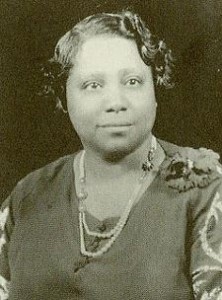 Taking note of this, America’s black educated elite followed suit, and Alpha Phi Alpha became the first intercollegiate Greek letter fraternity established for people of African descent when it chartered a chapter in 1906 at Cornell University. In Spring 1907, Ethel Hedgeman led the efforts to create a sisterhood at Howard University, inspired by the Greek experience of future-husband George Lyle, who was a charter member of Alpha Phi Alpha Fraternity’s Beta chapter at Howard.
Taking note of this, America’s black educated elite followed suit, and Alpha Phi Alpha became the first intercollegiate Greek letter fraternity established for people of African descent when it chartered a chapter in 1906 at Cornell University. In Spring 1907, Ethel Hedgeman led the efforts to create a sisterhood at Howard University, inspired by the Greek experience of future-husband George Lyle, who was a charter member of Alpha Phi Alpha Fraternity’s Beta chapter at Howard.
Hedgeman recruited any interested ladies and by autumn of that year, Hedgeman and eight other women began to draw plans for the organization. With Hedgeman serving as the temporary chairperson, the women wrote the sorority’s constitution, devised the motto and colors, and named the sorority Alpha Kappa Alpha. In early 1908, seven sophomore honor students expressed interest and were accepted without initiation; however, the first initiation was held in a wing of Miner Hall on Howard University on February 11, 1909.
Alpha Kappa Alpha grew at leaps and bounds at Howard, and 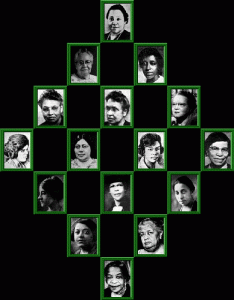 featured a bevy of ritual and sponsored social events. The sorority did hit its first snag, however, in 1912, when twenty-two members were initiated and seven officers were elected. The twenty-two were dismayed at progress and wanted to reorganize the sorority, leading to a split into two factions. The new members wanted to establish a national organization, enlarge the scope of activities of the sorority, change its name and symbols, and be more politically oriented. When Nellie Quander, a graduate member, heard about changing the sorority name, she disagreed and gave the other women a deadline to stop the efforts to reorganize the sorority. However, the twenty-two declined and instead formed Delta Sigma Theta on January 13, 1913.
featured a bevy of ritual and sponsored social events. The sorority did hit its first snag, however, in 1912, when twenty-two members were initiated and seven officers were elected. The twenty-two were dismayed at progress and wanted to reorganize the sorority, leading to a split into two factions. The new members wanted to establish a national organization, enlarge the scope of activities of the sorority, change its name and symbols, and be more politically oriented. When Nellie Quander, a graduate member, heard about changing the sorority name, she disagreed and gave the other women a deadline to stop the efforts to reorganize the sorority. However, the twenty-two declined and instead formed Delta Sigma Theta on January 13, 1913.
Quander later revised her opinion, and along with five other sorority members, led an initiative to incorporate Alpha Kappa Alpha Sorority as a perpetual body on January 29, 1913.The organization was nationally incorporated in Washington, D.C., as a non-profit under the name Alpha Kappa Alpha Sorority, Incorporated on January 30, 1913. During the same year the sorority began using Greek names for officers. After this, AKA continued to spread its wings with a second chapter at the University of Chicago in was chartered in fall 1913, with many others following soon after.
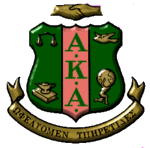 In a time when women were marginalized, and women of color were even more so, the ladies of AKA possessed a bravery and courage in their active role in the voting concerns of the day and the support for black rights and education. In addition, Alpha Kappa Alpha helped to support members by providing scholarship funds for school and foreign studies.
In a time when women were marginalized, and women of color were even more so, the ladies of AKA possessed a bravery and courage in their active role in the voting concerns of the day and the support for black rights and education. In addition, Alpha Kappa Alpha helped to support members by providing scholarship funds for school and foreign studies.
After graduating from Howard, Ethel Hedgeman Lyle and the other founding members of AKA continued to be a guiding light to subsequent pledges and members, using their education and social standing to uplift and encourage the lives of black Americans, and uphold the sisterhood, amidst crushing racism and violence practiced against blacks. Today, the sorority boasts a membership of college-trained women around the world, with active members who comprise a diverse constituency, from educators to heads of state, politicians, lawyers, medical professionals, media personalities, and corporate managers, and many chapters, located in the United States, the Caribbean, Canada, Germany, Korea and Japan.
For more information:
Alpha Kappa Alpha (wikipedia)
Official Website
Centenary Celebration

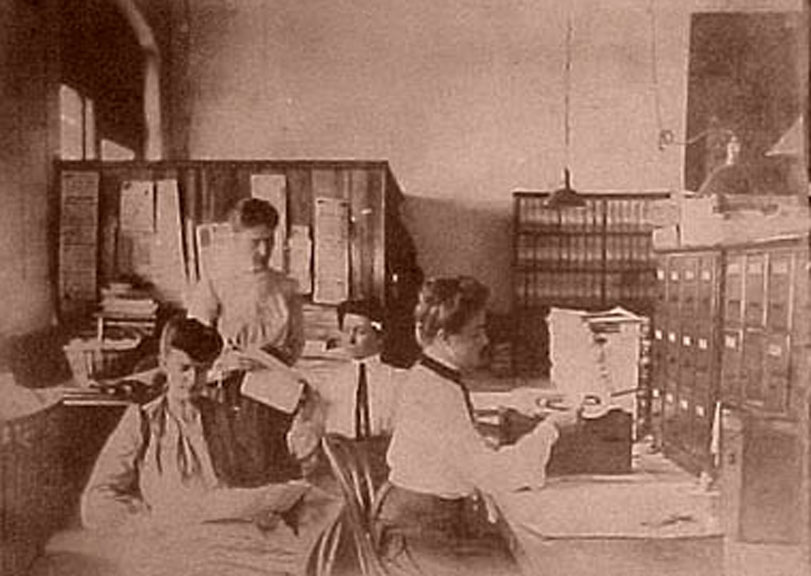
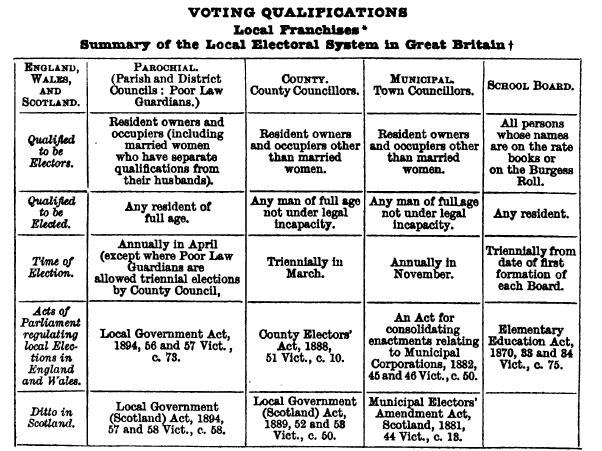

There are some items in this post that are extremely incorrect. AKA did not participate in the Womens Suffrage March – Delta Sigma Theta did. And someone needs to check the accuracy of the 200,000 members and 49,000 active in over 950 chapters. That’s not true either. If your source was Wikipedia then you are already on the wrong track. Try reading the history book instead.
Mea maxima culpa.
Actually, Alpha Kappa Alpha women did participate in the Womens’ Suffrage March of 1913 in DC. A Delta Sigma Theta woman was the main organizer, however, she asked AKA women to march as well. (She became a Delta in 1914 after she had organized the 1913 march) So dear Delta, Mary Church Terrell thought it was more important that women of color work together for the greater good, than keep on worrying about which sorority did what. Delta’s focus was on politics and AKA’s focus was on local education and health. However, the sorority women of 1913 all thought it more important that women be enfranchised, so that they might overcome some of the limits put on their existence. All of them realized sorority issues were of no matter if their voices were not heard. Also AKA has over 200,000 members but the number of chapters is off. I’m not sure of the exact number but it is closer to 750. Over 28,000 members were in attendance at the 100 year celebration in DC this past July.
We actually have 975 . . .
It is not true that AKA were asked and marched in the 1913 March for Suffrage. Mary Church Terrell was dismayed at the AKAs early social agenda in the 1912/1913 timeframe. Mary Church Terrell had no respect for AKA in the 1912/1913 timeframe and was greatly disappointed in their social agenda. In all of Mary Church Terrell written documents she states that she is disappointed in social sororities. The Washington Times, The Afro-american Newspapers and especially the
Black newspapers stated that only Delta Sigma Theta Marched for Women Suffrage in 1913. Also check out the artice in the Crisis Magazine in 1913 that mentions that DST was the only sororoity to march.
First and foremost, thank you for the nice editorial on Alpha Kappa Alpha Sorority, Inc. in honor of the organizations 100 years of service.
Anonymous & Delta Sigma Theta:
I am not sure why the negative tone in your responses or for that matter a response at all seeing as though neither of you are members of Alpha Kappa Alpha Sorority, Inc. but it is apparent that accolades to AKA seem to rub you both the wrong way. In any event, this is an editorial simply highlighting AKA’s achievements since inception in 1908 in which your comments are inappropriate and unnecessary for several reasons.
First, neither of you are AKA’s.
Second, I find it interesting that you scold the blogger for not having accurate information when you two are the ones who are misinformed. Therefore, I suggest you heed your own advice.
Third, Alpha Kappa Alpha membership stands at over 200,000 with 975 chapters worldwide.
Fourth, AKA members were very involved in the Suffrage Movement and contrary to what you believe, did participate in the 1913 Suffrage March in Washington, DC. Jane Addams who marched in both the DC and Chicago parades was an AKA; AKA’s first Honorary Soror in 1913. During the Suffrage era, not only did AKA’s have ties to Jane Addams but to Jeanette Rankin (briefly mentioned in AKA: In the Eye of the Beholder and Alpha Kappa Alpha: Through the Years), Addie Waites Hunton (becomes Honorary in 1933) and Charlotte Hawkins Brown (becomes an AKA in 1927). However, AKA’s presence at the 1913 march was not to the stature of DST and not under the umbrella of AKA; AKA never claimed that it was.
Unfortunately, in most cases the names of Black women that did participate in the parade were not recorded. Only certain Black women achieved that level of prominence such as Ida Wells and Mary Church because of how involved they were. The courage that DST showed at the parade was outstanding and something that I will forever be “in awe” of but DST members were not the only ones marching in the back. On the contrary, many African American Suffrage Clubs from various states such as Chicago and New York were there but again it was never thoroughly documented for several reasons; one being the tension between the Black Women Suffragists and the White Women Suffragists. Alpha Kappa Alpha has never made that claim nor is it claimed in this editorial. AKA history books mention that Soror’s not only participated in the Marches but in the Suffrage Movement as a whole.
Fifth, the Mary Church comment about her being “dismayed with AKA’s social agenda” is irrelevant to AKA. I don’t know what agenda you or Ms. Church is or was referring to but AKA is celebrating 100 years of service so our “agenda” is intact, forever evolving and making positive impacts in the community so don’t worry about it. The Service To All Mankind has always been the focus even when others wanted to change it and while our programs evolve to meet the current needs of the community, the spirit, focus and integrity never changes. Thus, out of respect for the legacy of Mary Church, who I believe became an Honorary Delta; I will leave it at that.
Lastly, as for your article references, again irrelevant seeing as though no one was disputing and or commenting on DST. DST’s participation in the 1913 Suffrage parade has never been denied by Alpha Kappa Alpha Sorority, Inc. or anyone else. So in the future, please don’t speak on behalf of Alpha Kappa Alpha Sorority, Inc. as I am sure you would be perturbed if a non Delta spoke on behalf of DST with inaccurate information to boot.
Sincerely,
Lisa (A proud and active member of the 1st and Finest)
Soror Lisa well said, well said! I will co sign as I too am an active Soror residing in Atlanta, Georgia. No doubt DST’s presence at the 1913 Suffrage March was formidable to say the least and in no way does this editorial deflect from that. Actually, I love that picture of DST holding their banner at the march; I love old historic photos.
Those comments weren’t even called for so knock the chips off your shoulders anonymous and Delta Sigma Theta; strong, wrong and out of order. I am curious as to the doubt of AKA’s membership and more importantly why you are worrying about it?
In addition to what my Soror said, I want to mention, Julia Lathrop who I became familiar with while in college; taking “Womens History” class. Lathrop was a staunch advocate for social reform as well as a staunch advocate during the Suffrage Movement; particularly Chicago. Lathrop and Jane Addams were very good friends. AKA also had ties with Julia Lathrop who is an AKA. The Suffrage Movement is a very intriguing era more so the relations between the White Women Suffragists and the Black Women Suffragists.
So, while DST profoundly left their mark on the Suffrage Movement and in particular at the 1913 Suffrage parade in Washington, DC they did not do it alone. Regardless, this point shouldn’t have had to be made but when non AKA’s start spouting off what AKA did or did not do, it has to be addressed.
Regards,
Team Soror Nellie Quander
Happy Birthday Alpha Kappa Alpha Sorority, Inc.!
It’s unfortunate that a nice article on AKA’s achievements is undermined by foolishness. In any event, Lisa and Andrea handled it very nicely; with class. Congratulations on 100 years of Service To All Mankind!
Karen
101 Years and counting!
Nice work Sorors! ; )
This is such a lovely piece, and it boggles my mind why anyone who is not affiliated with this obviously unstoppable organization would make such unresearched statements. I am not a member of either organization, but just by reading the above posts, I assume that Delta Sigma Theta Sorority, Inc. resents Alpha Kappa Alpha Sorority, Inc. I know this is not the case, and that one should not judge an org. by one or two members, but please remember “discretion is key”. Those who have no knowledge of your org. base their interpretations on you. As for the ladies of AKA, who posted above. I am impressed! To the author of the article, your piece is well-written. Thank you for taking time out to learn about a fantastic org!
Happy Belated Birthday Alpha Kappa Alpha Sorority, Inc.!
I love me some DST no matter who did what.
Proud to be a Delta Mom.
Just FYI on an error (typo) kappa alpha theta was founded at DePauw not DuPauw and at the time the name of the university was indiana Asbury
I am sure glad someone knows a little history at my University! Thank you Student! 🙂
At the end of the day Delta Sigma Theta still has to pay homage to AKA. Because if there was no AKA there would be no DST. Considering, their founders were AKA’s originally. It’s just a fact. And yes DST’s, Alpha Kappa Alpha was apart of the women’s suffrage movement. Why does DST resent AKA so much. It has been 100+ years in the name of Jesus black women, please cut the foolishness and DST get over it, your organization is second with the Mother-Alpha Kappa Alpha leading the way.
From a black woman who is not affiliated with a sorority